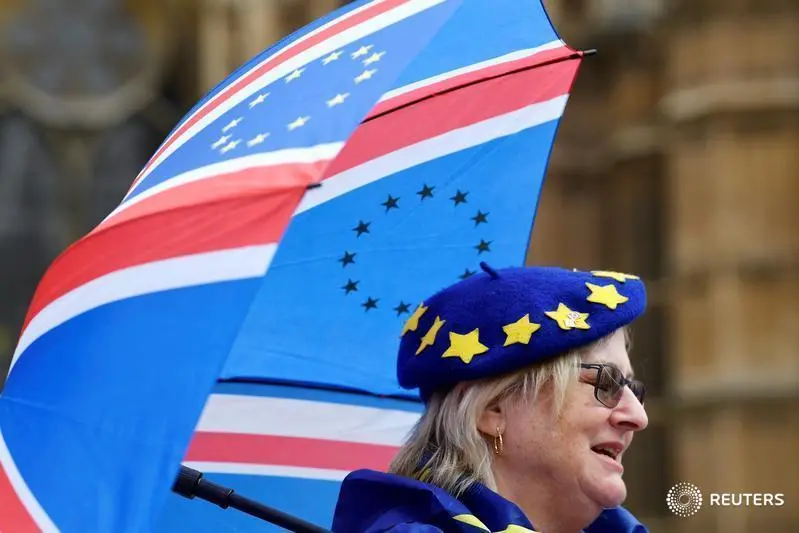PHOTO
DUBLIN/BRUSSELS- The European Union has a message for British Prime Minister Theresa May as she plots a path out of the Brexit impasse: a backup plan for the Irish border can be tweaked but will have to be included in any divorce deal.
With less than nine weeks until the United Kingdom is due by law to leave the European Union on March 29, there is no agreement yet in London on how and even whether to leave the world's biggest trading bloc.
Parliament defeated May's deal two weeks ago by a huge margin with many Brexit-supporting rebels in her Conservative Party angry at the Irish backstop, an insurance policy aimed at preventing a hard border in Ireland if no other solutions can be agreed.
Ahead of Tuesday's votes in the British parliament on a way forward, lawmakers in May's party are pushing for her to demand the European Union drop the backstop and replace it with something else.
Ireland said the backstop was staying and the European Commission repeated on Monday that the withdrawal agreement text, and its backstop component, is not open for renegotiation.
"The European Parliament will not ratify a withdrawal agreement that doesn't have a backstop in it, it's as simple as that," Ireland's Deputy Prime Minister Simon Coveney told the BBC.
As the Brexit crisis goes down to the line, however, EU officials indicated there might be wriggle room if May came back with a clear, and viable, request for changes that she - and the EU - believe will secure a final ratification.
The backstop is a type of insurance policy aimed at preventing a hard border between the Republic of Ireland and the British province of Northern Ireland if no other solutions can be agreed. It is the most contentious part of May's deal.
IRELAND
The question for May is whether the EU can offer enough to get a variant of her defeated deal through the British parliament.
Possible amendments floated by EU officials range from further public assurances that the backstop would probably never be used or only for a brief period to amending the text which accompanies the treaty and which lays out expectations for the trading relationship that will come in after the transition.
The EU has explicitly said if Britain were to stay in a customs union indefinitely, as the opposition Labour Party favours, that could leave the backstop redundant.
One key element is maintaining a united front with the Irish government, which insists it needs the backstop without a time limit to ensure there is no physical frontier, which could become a target of the violence that has been reduced as a result of the two-decade-old Good Friday Agreement peace deal.
EU and Irish leaders insist that Dublin is under no pressure to relent.
However, a looming no-deal Brexit, in which the EU insists Ireland cannot leave an open door to British goods, has highlighted the difficulty Ireland will face if the backstop issue scuppers an agreement.
EU leaders are open to giving May more time beyond March 29 if she can convince them she will use the time to secure the elusive orderly outcome, whether leaving or staying.
"SHOW US YOUR MAJORITY"
Brussels and the national governments are keeping their options open, however, determined not to give in to British demands that they believe would undermine their single market but also anxious to use every possibility to avoid chaos.
But they are reluctant to offer May more concessions that then fail to satisfy British lawmakers.
"Theresa May must show us a majority for something concrete. Come back and be specific about what she needs to get the deal passed," one EU source told Reuters.
"All eyes are on the House of Commons, what amendments pass and what can be built on their basis, maybe around the middle of February," said another.
May is trying to use a series of votes in parliament on Tuesday to find a consensus that lawmakers in her own party could support, just two weeks since her deal suffered the biggest parliamentary defeat in modern British history.
The British parliament on Tuesday will vote on proposals put forward by lawmakers including a delay to Brexit and going back to the EU to demand changes to the Northern Irish backstop.
In essence, May is forcing lawmakers to show their cards on what sort of Brexit, if any, they want. Lawmakers in her own party want her to demand a last-minute change to the deal to remove the backstop.
(Writing by Guy Faulconbridge; Editing by Janet Lawrence) ((guy.faulconbridge@thomsonreuters.com; 07825218698;))





















